Women's Contributions to Climate Change Adaptation in Egypt's Mubarak Resettlement Scheme through Cactus Cultivation and Adjusted Irrigation.

Authors:
This study examines the site-specific, social, political, ecological, and economic contexts that shape agricultural practices and policies in two desert resettlements of Sa’yda and Intilaq, also called the New Lands that form part of the massive Mubarak Resettlement Scheme (MRS) in Egypt. Within the political-ecological context of the New Lands, it takes a particular focus on practices and policies that enable women settlers to cope with climate change (Elmhirst 2011; Peet and Watts 2002; Rocheleau et al. 1996; Zimmerer and Bassett 2003). Environmental impacts often differ along gender lines within communities, and therefore, women must be directly involved in any attempt to remedy them (Agarwal 2000; Buechler 2009; Quagliiariello and Hamdy 2013; Sowers et al. 2011). This chapter contributes to the literature that examines gender in relation to environmental change and water resource struggles by offering a perspective on the Middle East.
